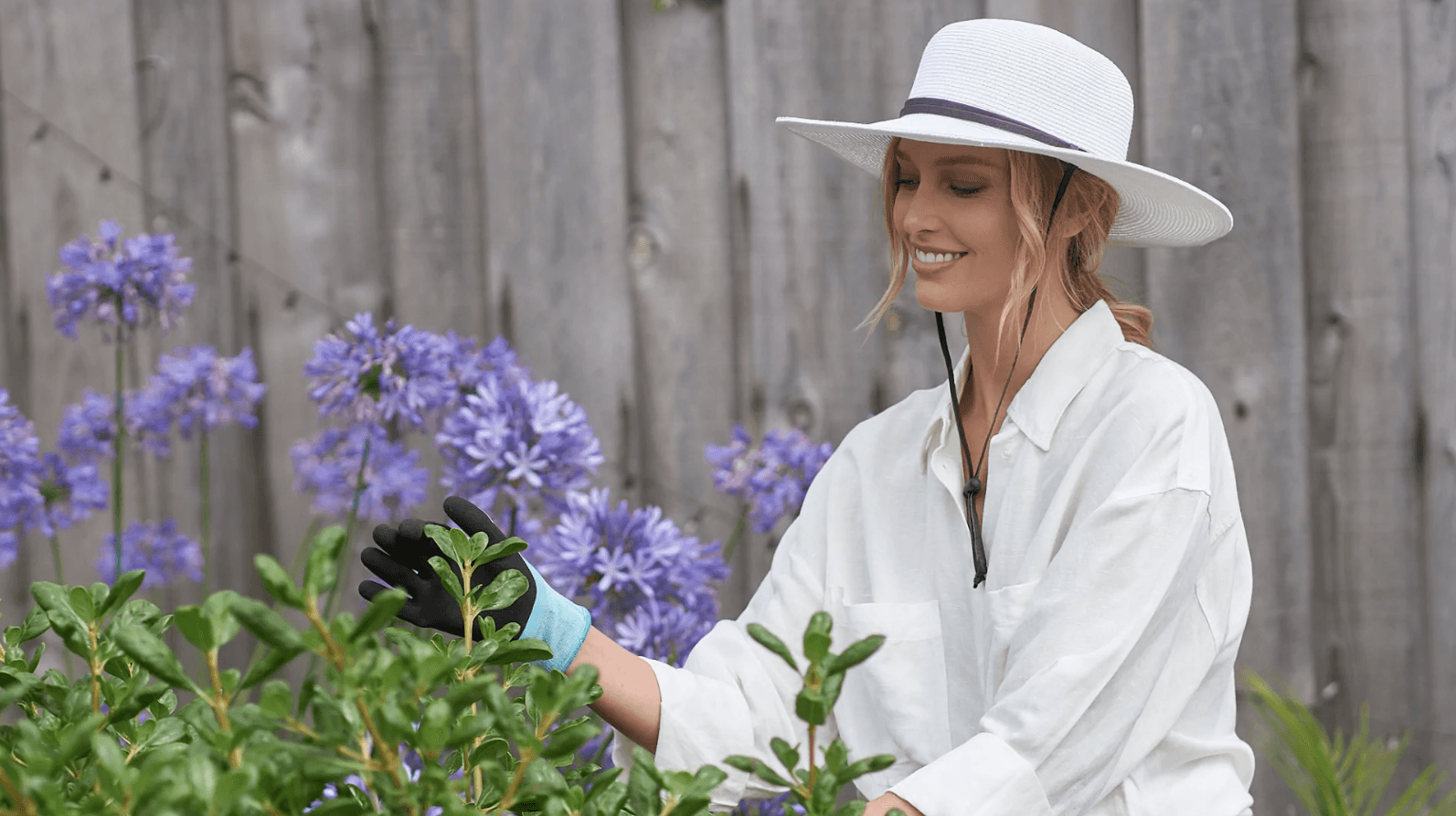
Prevent Skin Problems While Gardening
There are many rewards of gardening, whether you have a large yard or just a few plants in pots. Planting, weeding, watering, and caring for plants reduces stress, provides exercise, and exposes you to beneficial organisms in the soil.
But at the same time you’re experiencing all these benefits, our dermatologists in Jupiter want to remind you to take care of your skin while you’re indulging in your hobby. From strange rashes to sunburn, to bites, cuts, and stings, the outdoors presents its own set of challenges to your skin.
Here are some recommendations from the American Academy of Dermatologists (AAD) on protecting your skin while enjoying your garden.
Painful surprises
Of course, you know to avoid such plants as poison ivy, oak, and sumac. But did you know that the sap of some common garden plants could also irritate skin?
Some people, for example, are allergic to tomato leaves, caladium, or geraniums, or even just the touch of strawberries. Others can receive painful rashes when they’re handling carrots, celery, or citrus fruits, get the sap or juice on their skin, and then expose the skin to the sun.
These are just a few of the plants that can cause phototoxicity in some people, which is what that reaction is called.
Other plants are covered in spines, thorns, or barbs. Everyone knows to be careful when working with roses, but if you’ve ever tried to handle a pyracantha shrub without thick gardening gloves, you’ll know why its common name is “firethorn.”
These are just a few plants that can cause skin injury, and you may not know which until after a painful encounter.
Cover up
So when working with plants, dermatologists recommend wearing:
- gloves
- a shirt with long sleeves
- pants
- socks
- shoes that cover your feet, such as running shoes (no sandals or flip-flops)
Also avoid touching your face while working, because you might transfer plant sap to the skin. Use a clean washcloth to blot your face dry.
Cover up even more
When you’re engrossed in something like gardening, it’s easy to lose track of time. That’s part of what makes the hobby so enjoyable. But it can also make you oblivious to how long you’ve been exposed to the sun.
So, to avoid sunburn—which is not only painful but can also lead to premature skin wrinkling and eventual skin cancer—be sure to use a water-resistant, broad-spectrum sunscreen of SPF 30 or higher on all skin not covered by clothing, including your face, neck, lips, and ears.
In addition, dermatologists recommend wearing a wide-brimmed hat and sunglasses while outdoors, and avoiding gardening when the sun’s rays are strongest, between 11 a.m. and 3 p.m. (DST). If possible, stay indoors during these hours.
Avoid bug bites
Most insect bites and stings are merely painful or itchy annoyances, but some can be more serious and even deadly if you’re allergic to them.
So here’s what AAD recommends to avoid being bitten or stung:
- Spray insect repellent with DEET on your clothing once you’re outdoors.
- Avoid gardening and yard work during dawn and dusk, which is when bugs are most active.
- Flick off a bug rather than killing it, which can prevent the bug from biting or stinging.
- Check your skin from head to toe for ticks when you finish gardening, being sure to check the skin between your toes, hairline, and underarms.
Read the label
Many gardening products, from insecticides to weed killers, can cause injuries ranging from a mild rash to severe burns. In rare cases, people have developed life-threatening injuries.
So read the label before using the product, and be sure to follow all directions carefully. For example, if the label calls for a respirator, use one or don’t use the product.
When using fertilizer, wear gloves. After using a fertilizer, immediately and thoroughly wash your hands.
Treat wounds immediately
If you have a minor injury, such as a puncture wound from a thorn, don’t ignore it and keep working. Even a minor wound can become infected.
- Wash the wound with soap and water.
- Apply an antibiotic ointment.
- Cover the wound with a bandage.
- Keep the wound clean by changing into clean gloves and clothing before you continue.
- Clean the wound and change the bandage every day until the wound heals.
- Treat itchy or irritated skin with a cortisone cream.
- Alleviate allergy symptoms, such as itchy eyes and sneezing, by taking an antihistamine.
Most gardening-related skin injuries can be treated at home. If an injury doesn’t heal within 14 days or if it worsens, be sure to contact us for help.

